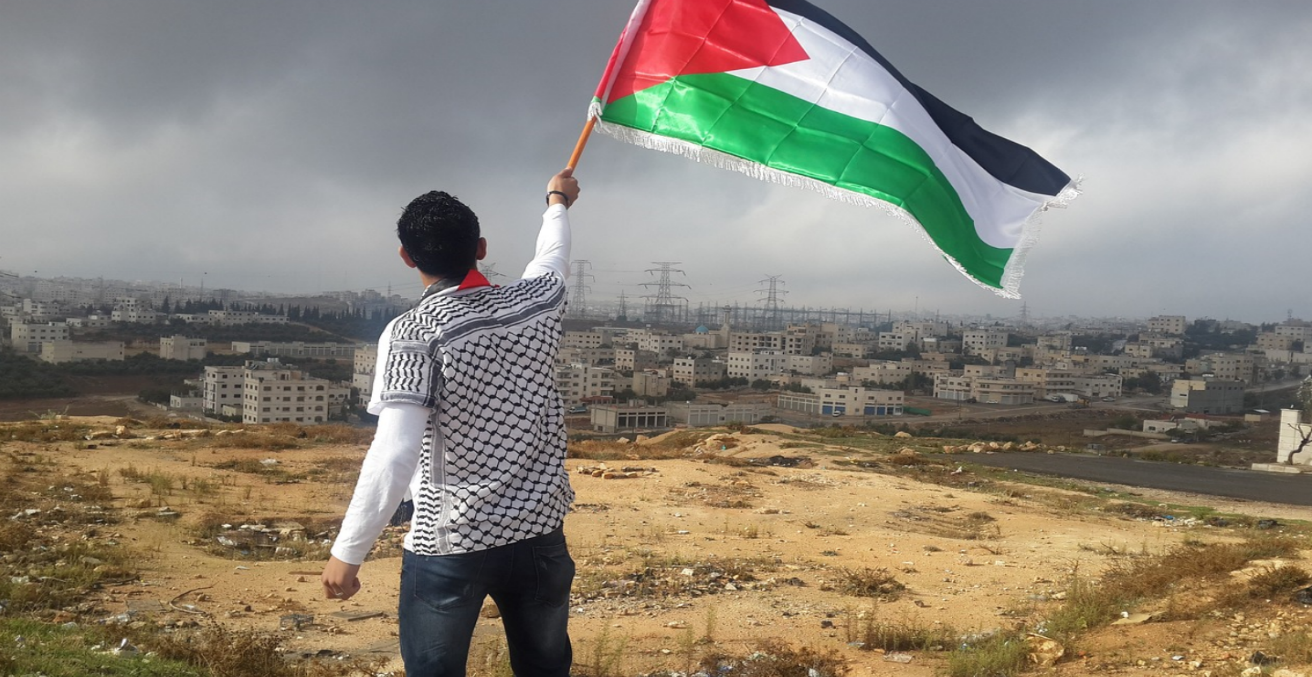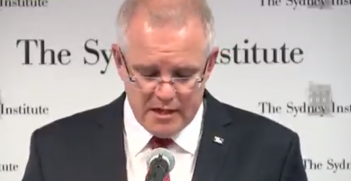The Human Tragedy of Palestine

Last month Australia ended its direct aid to the Palestinian Authority and suspended Union Aid Abroad-APHEDA’s multi-million dollar program in Palestine. It is time to change the trajectory of jaundiced scepticism of everything Palestinian.
Like most Australians, I started out myself as a reflex supporter of Israel, seeing its creation as the righting of the monstrous wrong done to the Jewish people in the Holocaust. But I came to realise during my student days in the 1960s that the righting of that monstrous wrong could never justify the grievous wrong done to the Palestinian people who themselves bore no responsibility whatever for the Nazi crimes.
I have for a long time believed, and argued – as foreign minister, and as head of the International Crisis Group for 10 years when I was closely involved in Middle East peace-making efforts – that as a simple matter of natural justice and natural human decency that the Palestinians’ desire for independent statehood must be recognised. But always from the position that a just resolution of the Palestinian issue is not only in the interests of Palestinians, but Israel itself. In continuing to drag its heels on everything that would advance such a resolution, Israel and those who support its current leadership are not only standing against the tide of history, but acting against its own founding ideals, and creating a mass of problems for its own longer term security and well-being.
The tragedy now, for everyone in the region, but above all for the millions of displaced, exiled and stateless Palestinian refugees is that – 70 years on from 1948 – we are as far away now as we have ever been from a just, sustainable and mutually acceptable solution to the Arab-Israeli problem.
The intention of the United Nations in 1947 was to accommodate both Jewish and Palestinian nationalist aspirations by creating Jewish and Palestinian states side by side, with new sovereign boundaries but with no one physically dispossessed and full citizenship rights for the minorities that would be left in each new state. That fell apart with the terrible war of 1948 and the conflict which continued through the intervening years to erupt again in 1967.
After the 1967 war there was a solid foundation for a new start, on the basis of land for peace, laid down in UN Security Council Resolutions 242 and 338, calling for Israel to withdraw from the territories it had occupied, and for both sides to recognise each other’s “right to live in peace within secure and recognised boundaries free from threats or acts of force.” The tragedy of all the years since 1967 is that it has proved simply impossible to deliver on that deal.
The hardest single issue to resolve for those of us who, like me, have strongly supported a two-state solution is that of the right of return. It is impossible to argue against the fundamental moral issue: the forced dispossession of Palestinians from their homeland was indefensible at the time, and has remained indefensible since.
But I think we all have to acknowledge the overwhelming practical reality that Israel is never going to accept the unrestricted, unconditional return of all those who were dispossessed, let alone the generations to which they have given birth since, and there is no mood whatever to force them to do so. A one-state solution, to which many are now turning in despair at the present impasse, might conceivably improve conditions for Palestinians now living in Israel, the West Bank and Gaza. But it is hard to believe that Israelis will not fight to the death to preserve their state’s Jewish identity. They will opt for outright apartheid rather than accept Palestinian majority rule, and will be more determined than ever to close their borders against the return of the dispossessed who would guarantee that majority. And I find it difficult to see anyone in the wider world fighting to stop them.
So we keep being forced back to the kind of compromise solution to the right of return, within a two-state solution framework, that has been discussed over and again, with agreement almost within reach at Camp David in 2000 but proving totally elusive ever since. Yasser Arafat described the essential character of that compromise in the New York Times in 1992: “We understand Israel’s demographic concerns and understand that the right of return of Palestinian refugees, a right guaranteed under international law and UN Resolution 194, must be implemented in a way which takes into account such concerns.”
Most Palestinian refugees would have enormous difficulty in accepting anything short of a completely unrestricted right of return. But one way of at least beginning to address Palestinians’ deep and totally justified sense of injustice, without significantly affecting Israel’s demographic balance, would be the formula proposed by my own International Crisis Group in a seminal series of ‘Middle East Endgame’ reports in July 2002. This involved the expansion and continuation of Israeli family reunification and humanitarian programs; major financial compensation and resettlement assistance to refugees; and giving them the options of relocation to Palestine, relocation to lands within Israel proper that will be swapped with the state of Palestine, rehabilitation in present host countries, and relocation in third countries. Obviously not perfect, but not impossible to implement with strong political leadership and goodwill, and better than the hopelessly unresolved and endlessly miserable situation that continues to exist now.
If the core refugee issue can be somehow resolved, the other outstanding issues could readily fall into place. Jerusalem can be shared, sensibly, as a capital of two cities. It is entirely possible to draw a border that allows most of the Israeli settlers, who are concentrated in urban centres close to the 1967 boundary, to stay where they are and gives the Palestinians a contiguous and viable state of the same size as that occupied in 1967. Security arrangements can be found acceptable to both, dealing with threats old and new. The conflict can be ended and two states for two peoples can exist side by side in peace.
Professor the Hon Gareth Evans AC QC FAIIA is the Chancellor of The Australian National University and former Minister for Foreign Affairs. He is President Emeritus of the Brussels-based International Crisis Group, an independent global non-governmental organisation working to prevent and resolve deadly conflict worldwide, of which he was President and Chief Executive Officer from January 2000 to June 2009.
This is an edited extract of a speech for the launch of ‘Tears for Tarshiha’ by Olfat Mahmoud (Wild Dingo Press, 2018) in Melbourne on 26 July 2018.
It is published with permission.





